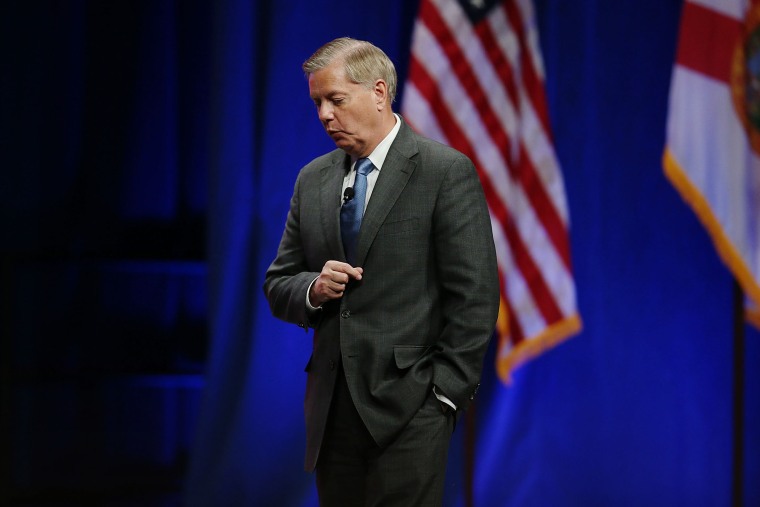When Democrats originally tackled health care reform in 2009, there was no great mystery surrounding their motivations. As we discussed several months ago, Dems in Congress and the White House identified some key systemic problems -- too many Americans lacked basic health coverage, and even those with insurance faced costly risks -- and then worked on a solution.
Maybe you liked what they came up, maybe you didn't, but either way, there's no question as to why Democrats created the Affordable Care Act. They had specific goals, and by and large, they've achieved them.
Eight years later, Republicans are obviously determined to overhaul the nation's health care system, but the purpose of their crusade is far less clear.
At the surface, we know GOP lawmakers are scrambling to pass their latest proposal because they hate "Obamacare," and because they made a public commitment to destroy it. But putting aside displays of raw partisan power, we can circle back to a point Peter Suderman raised in March and ask a more fundamental question: what is the substantive purpose of this endeavor? What is the policy problem Republicans are attempting to solve?
It certainly doesn't have anything to do with their criticisms of "Obamacare." Going into the debate, the ACA's Republican critics said the current system didn't cover enough people and imposed costs on consumers that were too high. Their "solution," such as it is, will cover far fewer people and likely force premiums higher.
It also doesn't have anything to do with "repeal and replace," since the bill doesn't actually create a replacement system. It's more "repeal and hope states don't hurt too many people."
And it definitely doesn't have anything to do with keeping promises. Everything Donald Trump and GOP leaders said about insuring "everybody" and protecting those with pre-existing conditions has been cast aside without explanation.
I sincerely doubt there are any rational adults who will look at the Republican plan and conclude that families will be better off if it becomes law. The amazing thing, though, is that this isn't really part of the GOP's pitch -- because improving the lives of the American people doesn't appear to be the principal goal of the legislation.
Indeed, try to find a conservative policymaker who's eager to make a sincere case that the public will be safer, healthier, and more secure as a result of this legislation. At least for now, they remain elusive.
And to a very real extent, that leaves us with a dynamic that's hopelessly bonkers. We know Republicans want to replace the American health care system with a regressive alternative, and we know this will impose real hardships on much of the country, but we don't know why they're doing this.
Graham-Cassidy may pass next week, and no one has the foggiest idea what questions the bill intends to answer.
